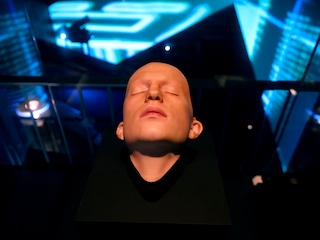Of humans, machines and what lies between them
In a series of articles, Forbes India looks at films that have depicted artificial intelligence in unique ways, and raised some profound questions


Artificial intelligence (AI) has long been the subject of some of the best fiction in the world. Authors like Issac Asimov, Arthur C Clarke and Philip K Dick have imagined worlds and characters that are truly revolutionary. Subsequently, AI, or variations of it in the form of sentient machines, caught the imagination of filmmakers while some of them relied on existing literature to base their films on, others went ahead and conjured up their own fictitious worlds.
One of the binding themes that has linked some of these movies is the question: What differentiates sentient machines from humans? And, perhaps as an extension, what makes us truly human?
Today, when countries and corporations discuss and debate the advantages and risks of allowing machines to “think", Forbes India takes a look at how the world of cinema, in India and Hollywood, has tackled questions like these and those even more complex. Over the next few days, over a series of articles, we list films that have depicted AI and sentient machines in unique ways and have raised questions to which we still seek answers.
Author Alex Garland’s directorial debut Ex-Machina could well have been a stage performance, if it was not for the SFX required. The entire film plays out through dialogues between its three protagonists—Nathan (Oscar Isaac), Caleb (Domhnall Gleeson) and Ava (Alicia Vikander), an AI-powered humanoid. Dialogues that question and explore how ‘human’ artificial intelligence can be, and even what human intelligence itself is. Not even bothering with what can only be seen as childish arguments about AI’s ability to ‘think’, the movie drags the viewer by the collar, headlong into the realm of manipulation, an ability that perhaps makes humans unique among animals. As Nathan put it, Ava used her “self-awareness, imagination, manipulation, sexuality, empathy," and “if that isn’t artificial intelligence, then what is?"
Manipulation does emerge as the most human of abilities as the viewer is left to navigate the web of truth, lies and half-truths that the three protagonists weave around each other. It is a thriller where you don’t know who is getting an upper hand on whom like a chessboard, each character, by turn, seems to be drawn into psychological traps from which they must escape.
The movie stands distinctly apart from other AI-themed films, replete with violence, over-the-top characters and ‘futuristic’ settings. Much like a stage performance, the plot unfolds within the confines of Nathan’s secluded home and research centre, with labyrinthine corridors and dark rooms.
***
A scene from Chris Columbus"s" FILM "BICENTENNIAL MAN" Image: Ronald Siemoneit/Sygma/Sygma via Getty Images
The film was panned by critics and viewers alike, and tanked at the box office. From a director like Chris Columbus (maker of comedies, including the two editions of Home Alone, Mrs Doubtfire, Nine Months and Stepmom) and actor Robin Williams, it seems no one expected a film that, through its jokes and capers, raises the profound question of what it means to be human.
The story follows the life (yes, life) of Andrew, a robot brought into the Martin household to help with chores, and how, over the course of the next two centuries he becomes increasingly human—physically, physiologically, neurologically and emotionally. What starts out with Andrew displaying the unexpected characteristics of creativity and basic emotions evolves into his mechanical parts being gradually replaced with synthetic versions of human organs, while he develops the abilities to feel complex emotions and desires. As he watches his family members die, as all humans do, he comes to believe that that is what will finally make him more human than anything else—mortality. “As a robot I could have lived forever… but I would rather die a man, than live for eternity as a machine," Andrew says in the end.
In a decade when Hollywood depicted intelligent machines as mostly ruthless and violent, with ambitions of world domination—think Terminator 2 (1991) and Matrix (1999)—Bicentennial Man was a gentle story about all the positive and constructive characteristics and abilities that humans possess, and which a machine yearns to have. All wrapped in Williams’s brand of warm and fuzzy humour.
First Published: Jun 16, 2025, 16:17
Subscribe Now